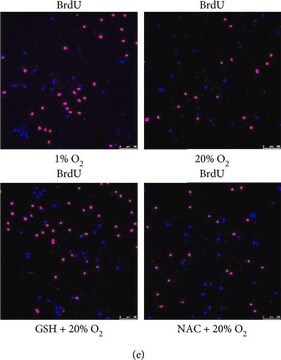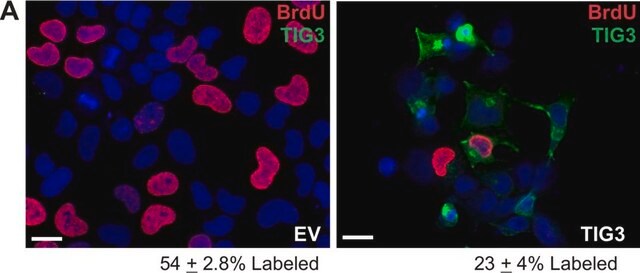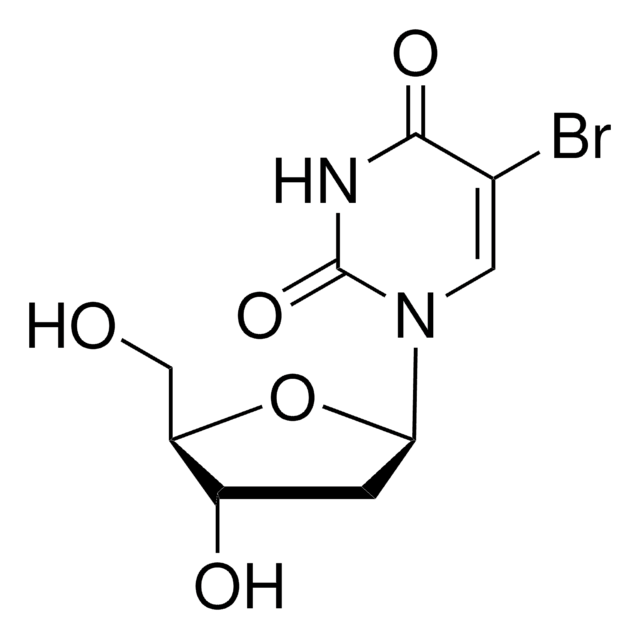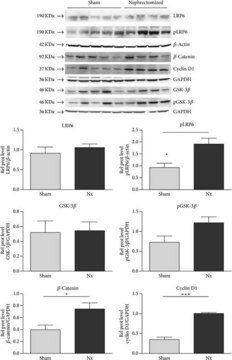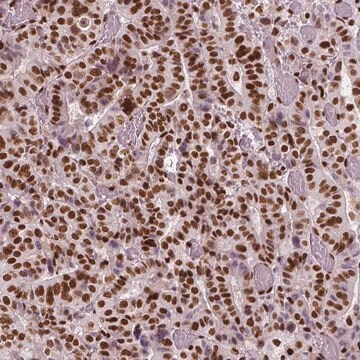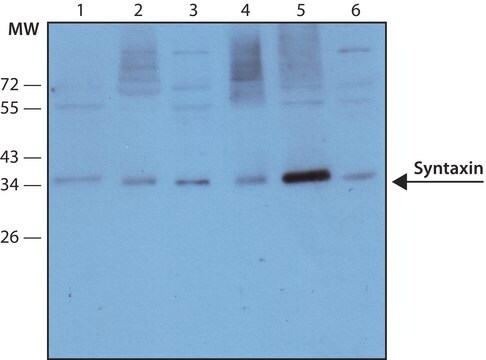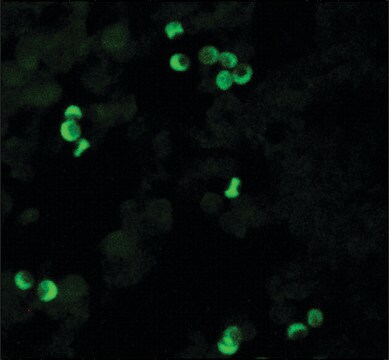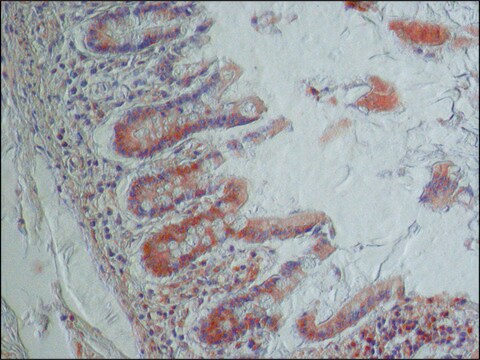SAB4701040
Monoclonal Anti-BrdU antibody produced in mouse
clone Bu20a
Synonym(s):
5-bromodeoxyuridine
Sign Into View Organizational & Contract Pricing
All Photos(1)
About This Item
UNSPSC Code:
12352203
NACRES:
NA.41
Recommended Products
biological source
mouse
conjugate
unconjugated
antibody form
purified immunoglobulin
antibody product type
primary antibodies
clone
Bu20a, monoclonal
form
buffered aqueous solution
concentration
1 mg/mL
technique(s)
flow cytometry: 2 μg/mL
shipped in
wet ice
storage temp.
2-8°C
target post-translational modification
unmodified
General description
The antibody Bu20a reacts specifically with BrdU incorporated into DNA during S-phase of a cell cycle. It is useful for detecting proliferating cells by flow cytometry or immunohistochemistry staining.
Immunogen
Bromodeoxyuridine conjugated to BSA
Physical form
Solution in phosphate buffered saline with 15 mM sodium azide.
Disclaimer
Unless otherwise stated in our catalog or other company documentation accompanying the product(s), our products are intended for research use only and are not to be used for any other purpose, which includes but is not limited to, unauthorized commercial uses, in vitro diagnostic uses, ex vivo or in vivo therapeutic uses or any type of consumption or application to humans or animals.
Not finding the right product?
Try our Product Selector Tool.
Storage Class Code
12 - Non Combustible Liquids
WGK
nwg
Flash Point(F)
Not applicable
Flash Point(C)
Not applicable
Choose from one of the most recent versions:
Certificates of Analysis (COA)
Lot/Batch Number
Sorry, we don't have COAs for this product available online at this time.
If you need assistance, please contact Customer Support.
Already Own This Product?
Find documentation for the products that you have recently purchased in the Document Library.
Coculture of spermatogonia with somatic cells in a novel three-dimensional soft-agar-culture-system.
Jan-Bernd Stukenborg et al.
Journal of andrology, 29(3), 312-329 (2007-11-30)
Isolation and culture of spermatogonial stem cells (SSCs) has become an approach to study the milieu and the factors controlling their expansion and differentiation. Traditional conventional cell culture does not mimic the complex situation in the seminiferous epithelium providing a
Our team of scientists has experience in all areas of research including Life Science, Material Science, Chemical Synthesis, Chromatography, Analytical and many others.
Contact Technical Service